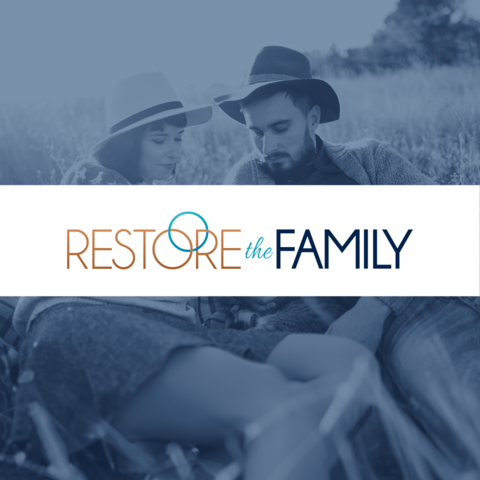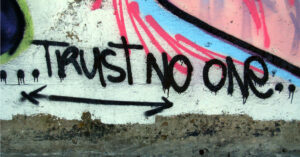When it comes to affairs, forgiveness goes hand in hand with blame. Before forgiveness is a possibility, there is blame. When the affair happens, one of the first things that is looked for is who or what to blame for the affair. You know that you do not like the affair, so you desperately look for someone or something to blame. Somehow attributing blame allows you to begin making sense out of things. When you have attributed blame, you assume that it make the affair explainable. Blame allows you to put the affair into a cause and effect sequence. The assumption is the when you have a timeline and the ’cause and effect’, that you can explain what happened.
Timelines help you sort out the sequence of events. Knowing the sequence often satisfies the logic of your mind. What is not satisfied at that point are your emotions. Having the ’cause and effect’ along with the timeline does not settle many of the emotional pain or explain the ‘why’ behind the affair. There are times that the what you attribute the blame to is also the answer to the why. Although that occasionally happens, there are times when what caused the affair and who or what you blame for the affair are not the same. For example, you may blame the lover, or even the cheater for what happened. Yes, they made some poor choices in doing what they did. As you look deeper, the choices may have been made in response to actions and attitudes that you had toward the cheater or even some unmet needs from their childhood or something else. What started the whole sequence of events that ended up as the affair may not have been what or who you are blaming.
What that means is that blaming is easy, yet finding the root of the affair is not. Blaming often gives you a false sense of closure and false sense of explanation. Blaming gives you a donkey to pin the tail on, but does not explain how the donkey got there.
Blaming is part of the healing process. The danger comes when you assume that blaming somehow explains it all. Blaming only starts the journey of understanding what you need, what the cheater needs and what your marriage needs.
Best Regards,
Jeff Murrah

















7 Responses
I agree, Jeff. Â Blaming is part of the process. Â It’s important to recognize that it is just a ‘part’ of it and not stop there in the recovery. Â Otherwise you only cheat yourself out of having a better future than your past could ever be. Â I read of so many betrayed spouses that cling to the past, actually refuse to admit to themselves that it really wasn’t that wonderful, and blame everyone else for their unhappiness. Â
You helped me recognize that I had stopped recovering and was in danger of getting stuck in the cycle of blaming a few years ago. Â Once I was able to see what I was doing to my relationship (and to myself) I was able to let go of the crutch that was holding me back from healing. Â Once I let go, well…it just went away. Â Once I stopped resisting, I was then able to allow the love and compassion that is a part of me to emerge again. Â I had kept it bottled up thinking I was protecting myself when I was actually doing more harm to myself.
You’re right. Â Blaming is so easy. Â Blaming doesn’t ease our pain or subdue our fear. Â It doesn’t help us feel better or bring us peace, it’s just easy. Â That should probably be a red flag.
Initially, determining why the affair happened was of utmost importance to me. Â Anymore, attaching a label to it doesn’t interest me. Â I have come to accept that it is what it is and who I choose to be in relation to the event is far more important. Â When I stopped looking for the “why” of the affair then the answers started appearing on their own. Â When I stopped blaming “them” for my unhappiness, the pain and frustration began to subside. Â I discovered I was a much bigger person than I had initially given myself credit for being and that I was capable of forgiving without holding on to anger or a desire for retribution. Â As a result, a whole new world has opened up for me, a world I never before dreamed was possible. Â It was all inside me, all along. Â I held the key to my happiness and my future. Â I just didn’t know how powerful I was before.
Things still crop up that need our attention, but now we have the tools to work through an issue. Â Today, we are both excited about life. Â We now look at life as an adventure that we want to explore together. Â It has been an amazing journey thus far.
“…truth brings peace, whereas falsehood brings fear. Â By that sign, it is possible to tell the difference.” Â David R. Hawkins
blueskyabove,
Thank you for sharing your experience. It was encouraging to hear how you managed moving past the blaming. So many people get stuck in that rut. Each phase has to be gone through and put behind you.
So do you think ‘blame’ and ‘accountability ‘ are the same thing?
Zaza,
You pose a good question there. Although ‘blame’ and ‘accountability’ share some common territory, there are some distinct differences. ‘Blame’ and “Accountability’ are often used interchangeably during some of the affair recovery period. “Blame’, I find tends to focus on the past or the cause of events, while ‘Accountability’ is more often used in terms of future orientation of moving past the affair. Another aspect of “blame’ that makes it distinct from ‘accountability’ is its association with guilt. Guilt and blame are often operating in a Yin-Yang type of dynamic. Those who feel guilty often seek to balance it out by blaming. The more the guilt, the more the blame. Accountability does not have that dynamic associated with it. With accountability, each person is accountable for their own actions. It is up to them to ‘fix’ the damage. Fixing the damage and causing the damage are often two separate things.
When dealing with people, I often use them interchangeably since that is what they are often doing. It is only after they start working on improving the marriage and moving past the affair, that I make the distinctions clearer. They are ready for that information at that point. Trying to make such distinctions early on often confuses them.
OK….I think I understand what you are saying …but I am thinking of the time when we all stand before the Lord to ‘give account’ …and how we are told as followers of the Lord to live our lives as we follow Him to be ‘unblamable ‘ or unimpeachable ‘ ….this accountability before Him ultimately does not provide a ‘space ‘ any longer for repentance and working out things…Since His Son paid for all sins and those who are IN HIM are thus accountable but devoid of ability to ‘pay ‘ anything toward a reconcilation at that point.
So I am going to understand your use of the word to be more in the context of a person willing to change direction and apply himself or herself to making changes that reflect not only an intention to NOT do what was done before but also to seek to learn HOW to avoid all contexts both within their own character and heart …and without …aka environments and activities which might lead to further violations of their vows as well as their walk before the Lord
This applies actually to believers but it may function well with those who are just sick and tired of living lies.
In some context though do you feel that looking back over the various sins is useful to that function of change? To ‘SEE” them for what they are in terms of the Biblical view of them? To learn the depth of how damaging they are to the self as well as the spouse and others.
What do you think of this way of seeing ‘blame’ and ‘accountability’?
Blame indeed does not get the hard work of self examination done …but then what of assigning blame to oneself that is not valid.
Such a point of view seems to be found often among wives who are married to men that they love and are concerned about pleasing the man but every aspect of neglect and rejection is something that wives will tend to apply to ‘what’s wrong with me’ ? Kind of thinking …
What do you find to be the different ways that this sort of thing effects the idea of ‘blame’ and ‘accountability” ?
I will have to do some more in depth study on ‘blame’ and ‘accountability’. I agree that we are all accountable for what we do, along with what we supposed to do and neglect. Since society uses the terms interchangeably, their use is often blurred.
With the example of a wife blaming herself, it raises some tough points to consider. Blame carries with it a form of condemnation and punishment. When she blames herself, she is looking for who to hold accountable for what happened, which in this case she points the finger at herself and then starts the process of punishing herself for being considered (by her, and in some cases the cheater, to be ‘at fault’). Her assigning blame does a couple of things 1) it gives her a ‘false’ sense of control over a situation that she has no control over and 2) takes the burden of conscience off the cheater. In other words, by blaming herself, she short circuits the pain which is needed to motivate the cheater to change their lives. She also is laying claim to problems that are not rightfully hers. She is claiming pain that was never meant for her.
There is a pain balance in the relationship. It is only when she chooses to stop hurting that the balance shifts and the husband starts hurting. This shifting back and forth continues until the issues are resolved.
By blaming herself, she has ‘taken matters into her own hands’. She becomes like the Biblical account of the foolish woman who takes her house down brick by brick by choosing to take things into her own hands.
Pro 13:12 Hope deferred maketh the heart sick: but [when] the desire cometh, [it is] a tree of life.